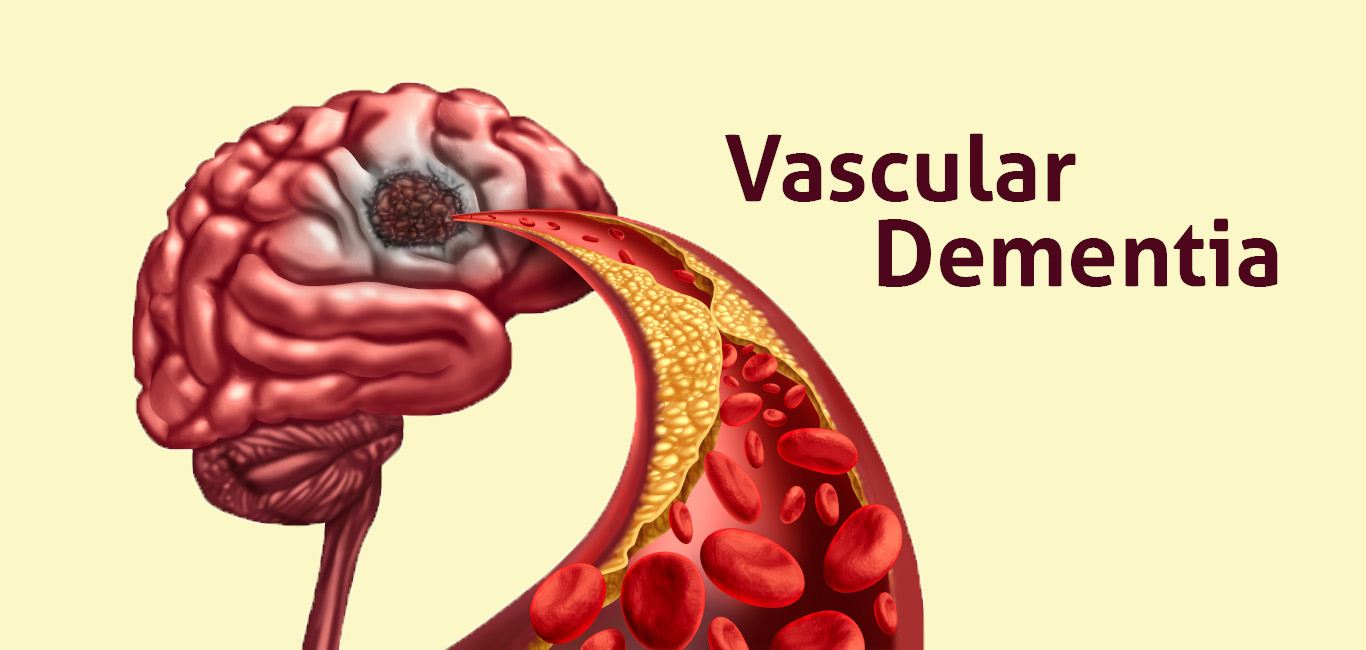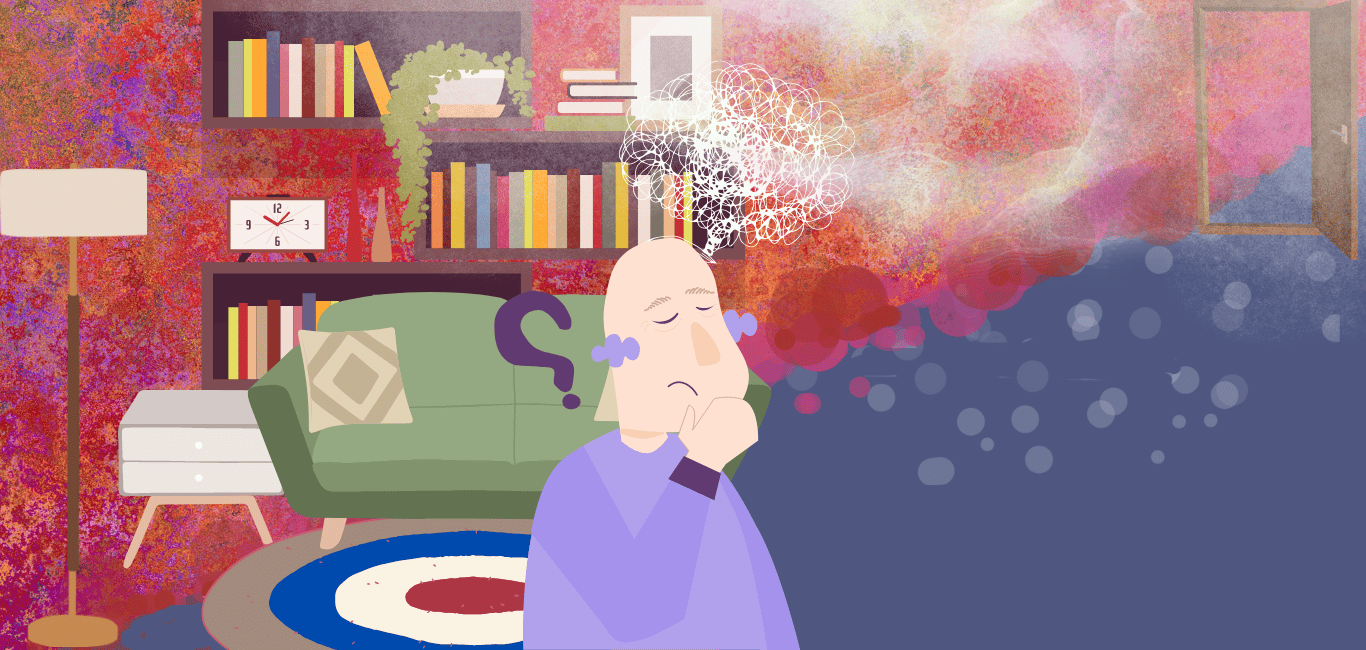
The circulatory system, also called the vascular system, is the network of blood vessels that transports oxygen to and helps remove waste from cells. This ‘plumbing network’ of the body needs to function smoothly, and any disruption can topple the body’s healthy state.
Vascular dementia is a neurological condition that arises due to an impeded blood supply to the brain. Memory loss, slowing down, and loss of speech are some signs seen in people who develop this — as Srinivas Vooruvakili’s father had.
“There was a point when he [father] forgot that he could not speak. He was clueless why we were unable to understand him,” says Vooruvakili, a resident of Bengaluru. His father first showed signs of memory lapse in 2019, which was later attributed to vascular dementia.
Globally, vascular dementia is the second most common form of dementia. It can either occur singularly or in concurrence with other neurodegenerative conditions like Alzheimer’s and Parkinson’s, which is called mixed dementia.
Fueling the brain
Neurons use up to 50 per cent of the oxygen supplied to the brain. “Synaptic function needs enough blood flow and energy to maintain the neuronal activity,” says Dr Latha Diwakar, a researcher at the Centre for Brain Research, Bengaluru.
Vascular disturbances affect the oxygen supply to the brain, depriving the neurons of oxygen. As a result, the neurons wither and die, manifesting as cognitive decline, seizures, stroke, or coma. Sometimes, the lack of oxygen to the brain can turn fatal.
What clogs the pipelines?
Cardiovascular conditions and plaque in the arteries (atherosclerosis) due to high cholesterol, diabetes, and high blood pressure can be the main cause of a stroke, leading to the onset of vascular dementia, says Dr Mohan Krishna, a neurologist from Yashoda Hospital, Hyderabad. “In India, vascular dementia is the leading cause of dementia due to the high prevalence of hypertension and diabetes,” he adds.
Vooruvakili’s father had suffered two strokes, after which his symptoms exacerbated. After the first stroke, his speech was affected, and the second impacted his gait.
“If it is a minor stroke, one may usually recover. But if it happens repeatedly, it leads to a permanent kind of cognitive deficit,” says Dr Diwakar.
In some cases, fat build-up in the arteries can result in vasoconstriction — a chronic narrowing of blood vessels. This narrowing due to plaques decreases the flow of blood carrying oxygen to the brain. Moreover, if the lack of oxygen prolongs, the blood vessels could be damaged, causing multiple small strokes. With no oxygen, the neurons begin to die.
Dr Diwakar’s team studied the effect of vasoconstriction on brain regions. When they mimicked vascular dementia in mice, they observed that the hippocampus– the seat of memory—was affected.
Vascular dementia can also happen due to a cerebral aneurysm, where weak arteries bulge or rupture, causing internal bleeding and brain damage.
Read: Study shows the link between blood group and risk of stroke

Tell-tale signs of vascular dementia
Vascular dementia affects all four domains of brain function: attention and focus, language, memory, executive and spatial awareness.
Increasing troubles with daily tasks like reading and writing, difficulty in judgement, and weakness in limbs are subtle signs, while changes in gait, stiffness and rigidity of the body, and tremors are strong indicators of the onset of vascular dementia.
“Vascular dementia generally affects the subcortical lobe of the brain; therefore, slowing down is noticed in every aspect of their lives along with personality changes,” says Dr Krishna. The subcortical region of the brain is responsible for cognitive, motivational, and social functions.
Vooruvakili says the poignant symptom noticed in his father’s condition was a drastic change in temperament. In contrast, memory loss and aggression were the symptoms that led to Cassandra Silver’s mother’s diagnosis. Silver is a Canadian resident. Her mother was 63 when she was diagnosed with the condition.
People with vascular dementia develop depression and aggression, congruent with memory loss and confusion.
Uncovering the clues through diagnosis
As many symptoms of vascular dementia overlap with other neurological conditions, clinicians call for a detailed examination before confirming the diagnosis. They consider the medical history, a physical exam, and a cognitive assessment. Blood tests (to eliminate other health conditions causing cognitive decline) and a brain scan to assess the condition follow.
“My mother’s vascular dementia was diagnosed by a CT (computed tomography) scan,” says Silver.
Vooruvakili’s father underwent a doppler test that identified the block in his carotid artery.
PET scans are increasingly used to check the dysfunction of the different brain regions and get an overall picture, says Dr Krishna. Further, MRI is used to check for minor obstruction in the brain’s blood vessels.
Read: This headband detects onset of stroke in minutes
Prevention is the rule of thumb
Although there is no known cure for vascular dementia, medicines are prescribed to address symptoms like stiffness, tremors, depression, and aggression. However, experts emphasise that lifestyle changes can prevent or delay the onset of vascular dementia.
“Smoking and drinking are strong risk factors for developing vascular dementia,” says Dr Krishna. Cassandra says, “My mother was a heavy smoker all through her life and quit only after her condition worsened.”
However, ongoing studies suggest that implementing these lifestyle changes earlier decreases the propensity for vascular dementia. For example, a few experiments indicated that vasoconstriction reversed faster in young mice but persisted after a particular age.
“If we address vascular dysfunction early in life, we can’t cure it, but we might be able to prevent the progression,” says Dr Diwakar
Read: Smoking-linked genes lead to poor recovery after stroke, suggests study
In addition, controlling diabetes and heart conditions can further reduce the risk of developing vascular dementia, says Dr Krishna. However, he emphasises that “Prevention is the only thing that can help someone from getting vascular dementia.”
“Maintaining a healthy lifestyle is paramount,” he says.

















